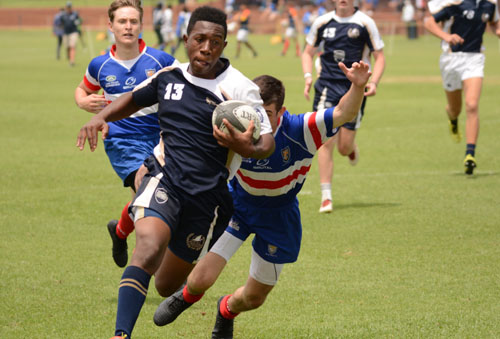The need for co-curricular activities in a digital world
As national lockdown ticks by we can assume that schools are well into their 70th day of remote teaching. Taking break-times into account, a 6-hour school day multiplied over 70 school days and it is rational to believe that pupils in South Africa have just been exposed to their 420th hour of facing a screen instead of a teacher.
Unhealthy things have been inserted into a young person’s life
That is also 420 hours of sitting down in an isolation bubble at home with 70 less breaks, assemblies and opportunities for corridor conversations, all while being away from friends with no discernible end yet in sight for the intrinsically social teenager.
A number of healthy things have been removed and a fair number of unhealthy things inserted into the life of today’s young person, and it is fair to say that we do not yet know what long-term effect this will have on them.
One is painfully aware that this is also the unique problem of a minority of South African school pupils who have the privilege of being taught online.
Never let schooling interfere with education
In a typical school day, children have time together in the morning before school. During the day they repeatedly get up, push their chairs in, leave classes and walk to the next class. They engage with others during this in-between time, bounce off each other during breaks and experience a physicality and a social landscape during the offered co-curricular program which has now been lost and is not due back anytime soon.
What happens between lessons and what happens outside of the classroom is often where the real learning happens. This is the place where behaviours and EQ is acquired. Mark Twain said, “I never let my schooling interfere with my education.” The difference between school and education is the difference between formal lessons and all the things that happen outside of those classrooms.
What is Learnt Outside the Classroom is just as important
The informal part of the school day, the part that has now been abandoned, is where social norms are acquired. These outside classroom times are where we learn to turn-take in conversation, where we learn to stand-up for ourselves and where we learn to stand-down.
While academic programmes are vital to the educational development of today’s young girl or boy and tomorrow’s high-functioning adult, what is learned outside the classroom is often just as, if not more, important.
So how can this gap be plugged? What can schools do to mitigate and ameliorate this lack?
Part of the answer lies in the maintaining of a synchronous and live co-curricular programme.
While the arena of competitive sports cannot be replicated, many of the components of the traditional co-curricular offerings can be. Certainly, an environment where social engagement can happen while being complemented by the physicality of skills-training is achievable online.
Schools need to bookmark this. Allowing co-curriculars to fall away is non-negotiable in a school that has the capacity and resources to offer this. Not only as an extension to the school day, but for the sanity and reprieve that physical learning and healthy competition offers to young people.
Ofentse Moeng, Head of Sports’ Development at HeronBridge College says that co-curricular needs to form part of the school timetable – just as it would on a normal school day.
“It is completely possible to run sports’ and cultural practices as they would normally have run and have these sessions focus on physical skills acquisition while generating a place where this can be done online together.” And so, if hockey practice would normally be on the astro on Mondays and debating on Thursdays, it can still be on Mondays and Thursdays at home, with the coach and full team.
The emotional, physical and mental well-being of young people is intrinsically bound to the participation in a co-curricular programme, especially today.
The hardest part of lockdown is the isolation, for a generation for whom isolation is an anathema.
Mr Moeng continues by drilling into the focus of these online practices. “Our sessions have been dedicated enrichment sessions scheduled once a week. This was also a prime opportunity to have external specialists such as nutritionists, professional coaches and players drawn-in for virtual engagements with our pupils and coaches.”
Schools are places where learning happens, both inside and outside the classroom. It is about all components working in harmony to produce an environment fit for learning and which is worthy of the young minds that experience it.
Allowing co-curriculars to be the collateral damage of the coronavirus is unacceptable in our educational framework. Young people are losing more than we realise.
By Simon Crane, Deputy Head of HeronBridge College High School





